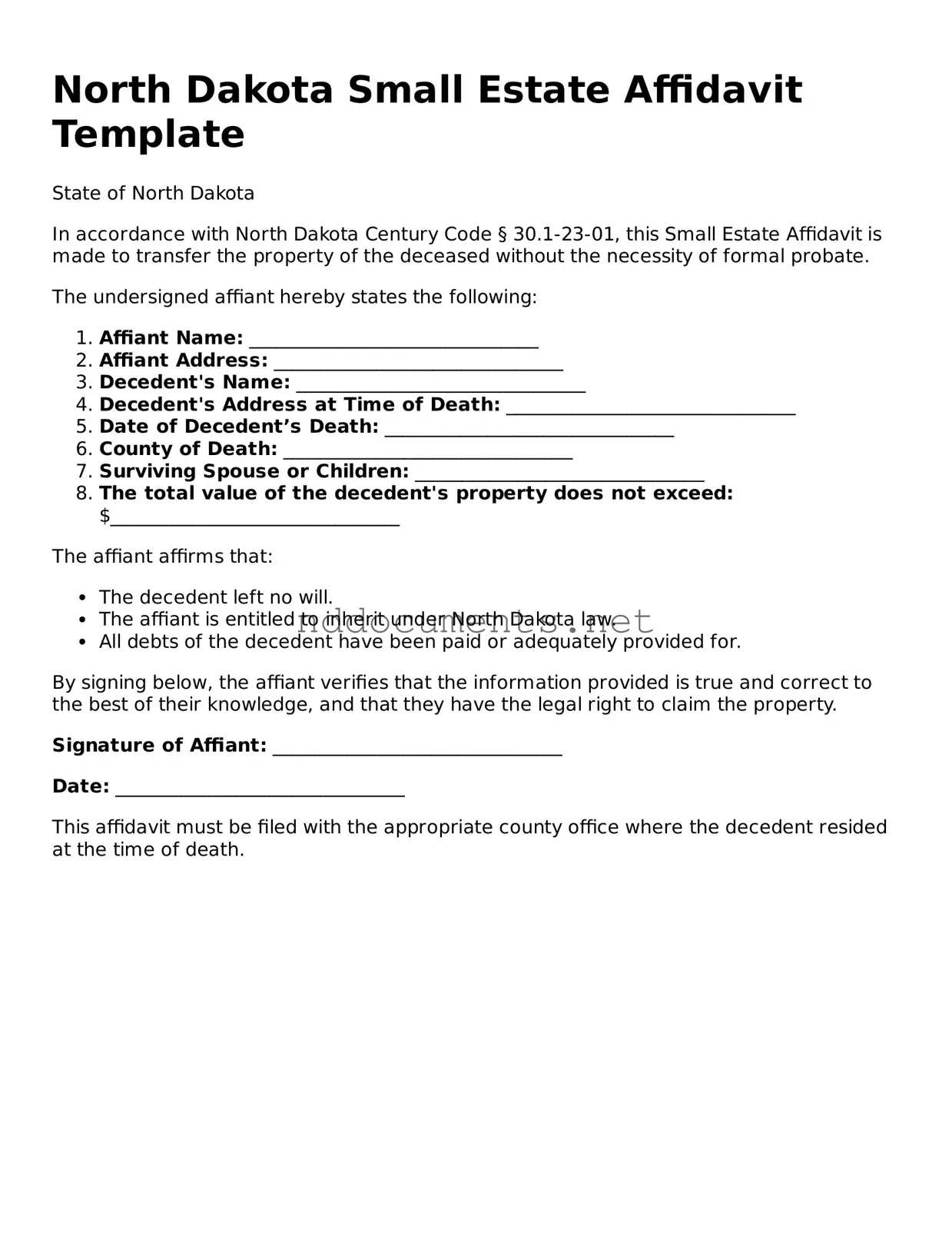Fillable Small Estate Affidavit Document for North Dakota
The North Dakota Small Estate Affidavit form is a legal document that allows individuals to settle the estate of a deceased person without going through the formal probate process. This form is designed for estates that meet certain criteria, typically involving a limited value of assets. By using this affidavit, heirs can claim the deceased's assets more efficiently and with less expense.
Make Your Document Online

Fillable Small Estate Affidavit Document for North Dakota
Make Your Document Online

Make Your Document Online
or
➤ Small Estate Affidavit
Don’t walk away from an unfinished form
Finish Small Estate Affidavit online quickly from start to download.